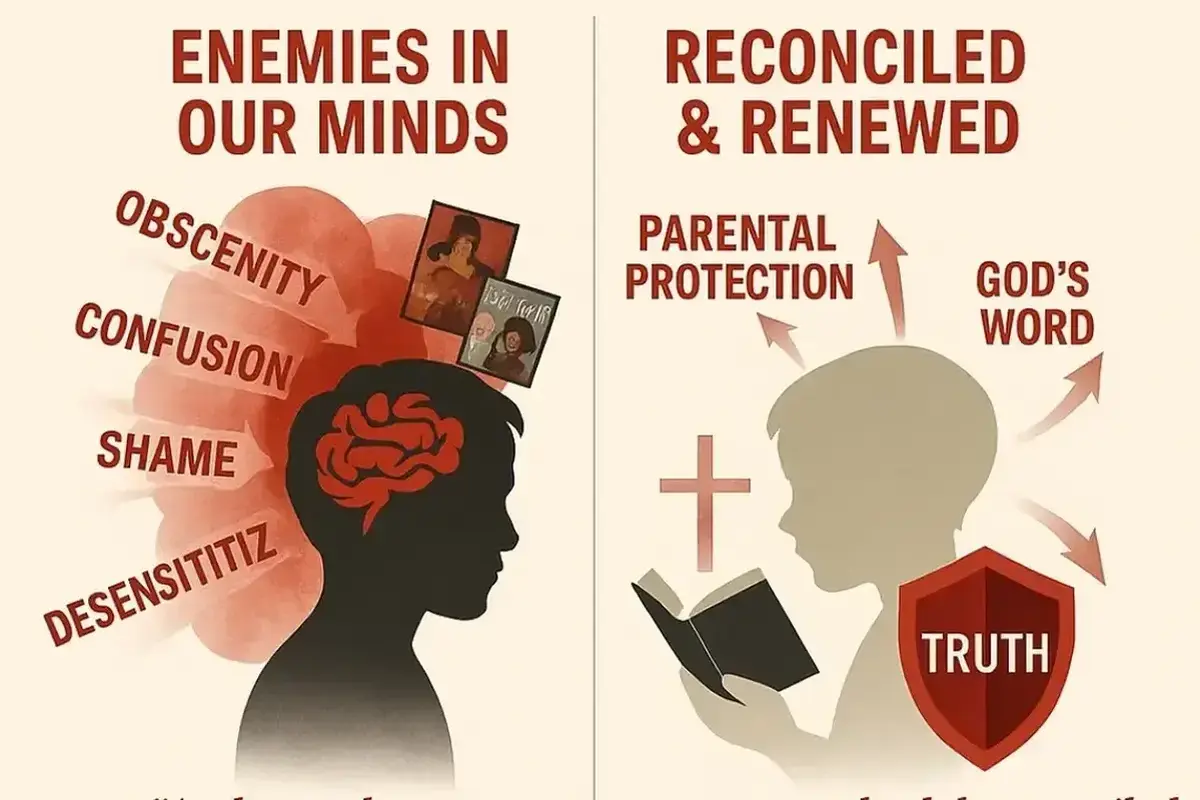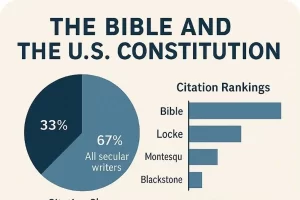When Scripture speaks about “submitting to governing authorities” (Romans 13, 1 Peter 2), in America those authorities ultimately are “We the People.”
The Constitution itself sets the framework, not kings or un-elected elites.
And yes — the Arizona Constitution, Article 2, Section 2 says:
“All political power is inherent in the people, and governments derive their just powers from the consent of the governed, and are established to protect and maintain individual rights.”
So when churches teach blind submission to rulers, they often miss the biblical and constitutional truth: in this nation, the people are the highest earthly authority under God.
That means Christians have not only the right, but the responsibility, to call government to obey both its own laws and God’s higher law.
Here’s the revised full speech with that woven in:
Obeying God Rather Than Men
Ladies and gentlemen,
From the beginning of the New Testament to the end, one common thread is clear: God’s people never bowed to government authority when it demanded they disobey Him.
Jesus Himself, standing before Pilate, declared that Rome’s power was limited and given only from above. He drew the line clearly when He said, “Render to Caesar what is Caesar’s, but to God the things that are God’s.” John the Baptist stood before King Herod and boldly rebuked him for breaking God’s law — even though it cost him his life.
When the apostles were dragged before the Sanhedrin and ordered never to speak in the name of Jesus, Peter and John replied, “We cannot but speak the things we have seen and heard.” Later they stood again before the council and declared without fear, “We must obey God rather than men.”
Stephen, full of the Spirit, confronted the rulers of his day and accused them of resisting the Holy Spirit and breaking their own law. He gave his life, but he did not give up the truth.
The apostle Paul held rulers accountable to their own standards. In Philippi, he forced the magistrates to admit they had unlawfully beaten a Roman citizen without trial. In Jerusalem, he appealed to his citizenship to stop an illegal scourging. And before Felix, Festus, and King Agrippa, Paul boldly testified of Christ, refusing to compromise the gospel, even when chained.
The book of Hebrews reminds us of the long line of faithful witnesses — from Moses to the prophets — who defied kings and rulers because they feared God more than man. And Revelation shows us the final testimony: believers who overcame the beast system “by the blood of the Lamb and the word of their testimony,” refusing to bow, even unto death.
Now, some will point to Romans 13 and say we must submit to the governing authorities. That is true. But in America, the governing authority is not a king, nor a Caesar. It is We the People. Article 2, Section 2 of the Arizona Constitution states: “All political power is inherent in the people, and governments derive their just powers from the consent of the governed, and are established to protect and maintain individual rights.” To submit to governing authority in this land is to honor the people’s right under God to establish just government — and to resist lawlessness when rulers step outside that God-given boundary.
Sadly, many churches have become ignorant of this fact. They have separated themselves from civil government, when in truth the people of God are supposed to guide, correct, and restrain it. To be silent when rulers break their own laws is not biblical submission — it is abdication.
The common thread through Scripture and history is unmistakable: God’s people honor rightful authority, but when government crosses the line into lawlessness or commands disobedience to God, believers do not cower. They call rulers to obey their own laws. They declare God’s truth without fear. And they stand firm, even if it costs them everything.
So let it be said of us as well… we must obey God rather than men.
New Testament Examples of Believers Resisting or Correcting Authorities
Jesus Before Pilate
John 18:33–37; 19:10–11
Action: Declared that Pilate’s authority came only from God and was limited. Put God’s sovereignty above Rome’s power.
Jesus on Caesar’s Tribute
Matthew 22:15–22; Mark 12:13–17; Luke 20:20–26
Action: Drew a boundary between government and God, saying, “Render to Caesar the things that are Caesar’s, and to God the things that are God’s.”
John the Baptist
Luke 3:19–20; Mark 6:17–18
Action: Rebuked Herod publicly for breaking God’s law regarding marriage. He stood unafraid before government sin, even though it cost him his life.
Peter & John before the Sanhedrin (Acts 4)
Scripture: Acts 4:18–20
Action: When commanded to stop preaching, they answered, “We cannot but speak the things which we have seen and heard.”
Peter & the Apostles before the Council (Acts 5)
Acts 5:28–29
Action: Refused the order to stop teaching about Jesus, boldly declaring, “We must obey God rather than men.”
Stephen
Acts 7
Action: Accused the Sanhedrin of resisting the Holy Spirit and breaking God’s law. He stood firm in truth even as they executed him.
Paul in Philippi
Acts 16:35–39
Action: After being beaten unlawfully, Paul demanded the magistrates acknowledge they had violated Roman law by punishing a Roman citizen without trial. He held rulers accountable to their own laws.
Paul in Jerusalem
Acts 22:25
Action: When about to be scourged, Paul appealed to his Roman citizenship. He used legal rights to restrain unlawful government action.
Paul before Felix, Festus, and Agrippa
Acts 24–26
Action: Gave fearless testimony before governors and a king, refusing to compromise the gospel for political convenience.
Paul in Rome
Acts 28:16–31
Action: Preached the kingdom of God openly while under house arrest, showing he would not be silenced by state custody.
General Faith Witnesses (Hebrews 11)
Hebrews 11:23–38
Action: Summarizes Old Testament believers who defied rulers by faith (Moses rejecting Pharaoh, prophets defying kings). The NT ties this as the same pattern for Christian witness.
Revelation Saints
Revelation 12:11; 13–14
Action: Refused to bow to the beast system, choosing obedience to God even under threat of death. “They loved not their lives unto the death.”
The Common Thread
From Jesus to Revelation, the testimony is unbroken.
Believers acknowledged government’s limited place, but never allowed rulers to override God’s authority.
They called rulers to account for breaking their own laws (Paul, John the Baptist, Stephen).
They refused to cower or remain silent when commanded to deny Christ (apostles, Revelation saints).
They were willing to suffer persecution or death rather than disobey God.





